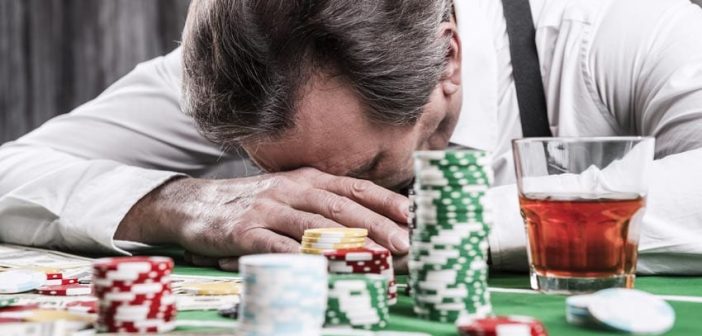In recent years, gambling apps have surged in popularity across India, promising quick fortunes and easy wins. However, behind their glossy interfaces and enticing advertisements lies a darker reality: these apps are causing significant harm to low and middle-income households. While the allure of potential financial gain might seem irresistible, the repercussions of gambling addiction are devastatingly real, particularly for the financially vulnerable.
The Rise of Gambling Apps in India
India’s gambling industry has seen a boom with the advent of mobile technology. The proliferation of smartphones and internet access has facilitated the growth of online gambling platforms. According to a report by The Hindu BusinessLine, the online gambling market in India is projected to reach USD 21 billion by 2025. The ease of access and the convenience of gambling apps have attracted millions, but this widespread adoption has not been without serious consequences.
Financial Impacts on Low and Middle-Income Families
For low and middle-income households, the financial strain caused by gambling losses can be catastrophic. According to a study published in the Journal of Gambling Studies, individuals from these income brackets are more likely to spend disproportionate amounts of their income on gambling. This often leads to dire financial instability, including debt accumulation, loss of savings, and even foreclosure of property.
A recent survey conducted by the Centre for Responsible Gambling highlights that nearly 60% of gambling app users in India are from low and middle-income backgrounds. These users often gamble beyond their means, driven by the false hope of recovering their losses. The financial burden typically results in an escalation of debt, with many families resorting to high-interest loans or borrowing from friends and relatives to cover their gambling expenses.
Psychological and Social Consequences
The impact of gambling is not only financial but also psychological and social. Gambling addiction can lead to severe mental health issues, including depression, anxiety, and suicidal tendencies. The National Institute of Mental Health and Neurosciences (NIMHANS) reports that gambling addiction can exacerbate existing mental health problems and create new ones. Individuals who gamble excessively often experience a significant decline in their quality of life, including deteriorated relationships and diminished work performance.
Families of gambling addicts suffer as well. Domestic violence and familial discord are common among households where gambling addiction is prevalent. The Indian Council of Medical Research (ICMR) conducted a study showing that gambling addiction is associated with increased rates of domestic abuse and family breakdowns. This has a ripple effect, impacting children and other family members who may face emotional and psychological trauma.
Lack of Regulation and Support Systems
One of the major issues contributing to the rise in gambling problems is the lack of stringent regulation. Despite the Supreme Court’s ruling on gambling laws in India, many gambling apps operate in a legal grey area, exploiting loopholes and regulatory gaps. The absence of effective oversight allows these platforms to target vulnerable individuals without adequate safeguards.
Furthermore, there is a significant lack of support systems for those affected by gambling addiction. While there are some helplines and support groups, they are often underfunded and not widely publicized. The Gambling Addiction Support Network highlights that many individuals do not seek help due to stigma or lack of awareness about available resources.
Case Studies and Real-Life Stories
Real-life stories paint a vivid picture of the havoc gambling apps can wreak. In a case reported by The Times of India, a 34-year-old man from Mumbai lost his job and subsequently his home due to gambling. Despite earning a decent salary, he was drawn into the trap of gambling apps, leading him to borrow money from loan sharks to fuel his addiction. His story is not unique; numerous such cases are reported across the country, illustrating the widespread nature of the problem.
Another example is that of a family in Delhi who faced eviction after the father’s gambling addiction led him to take out loans that he could not repay. The financial strain forced the family into poverty, highlighting the devastating impact gambling can have on low and middle-income households.
Government and Policy Responses
In response to the growing issue, there have been calls for stronger regulatory measures. Several advocacy groups are pushing for stricter laws to regulate gambling apps and provide better support for those affected by gambling addiction. The National Association for Problem Gambling (NAPG) has proposed a framework that includes mandatory self-exclusion features on gambling apps, better transparency in advertising, and more comprehensive addiction support services.
Additionally, there is a push for public awareness campaigns to educate people about the risks associated with gambling and to promote responsible gambling practices. The government’s role in regulating the industry and supporting affected individuals is crucial to mitigating the negative impacts of gambling apps.
Conclusion
The rise of gambling apps in India has brought to light significant issues affecting low and middle-income households. The financial, psychological, and social consequences of gambling addiction are profound, often leading to severe instability and distress. While the allure of easy money can be tempting, the reality for many is a descent into financial ruin and personal despair.
Addressing this issue requires a multifaceted approach involving stricter regulations, improved support systems, and greater public awareness. As gambling apps continue to evolve and expand, it is imperative that both the government and society take proactive measures to safeguard vulnerable populations and mitigate the detrimental effects of gambling addiction.





